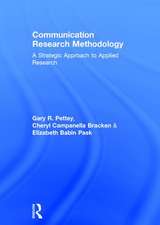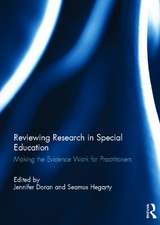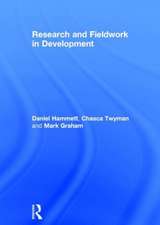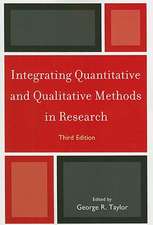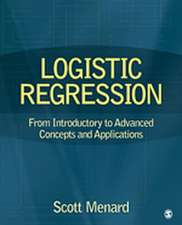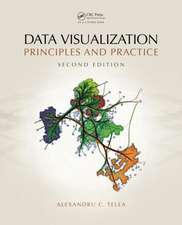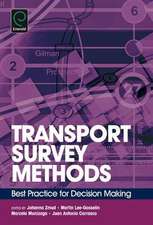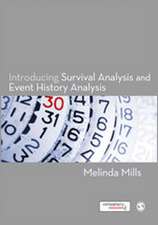Sequence Analysis: Quantitative Applications in the Social Sciences, cartea 190
Autor Marcel Raab, Emanuela Struffolinoen Limba Engleză Paperback – iun 2022
Din seria Quantitative Applications in the Social Sciences
-
 Preț: 306.08 lei
Preț: 306.08 lei -
 Preț: 270.02 lei
Preț: 270.02 lei -
 Preț: 270.25 lei
Preț: 270.25 lei -
 Preț: 274.06 lei
Preț: 274.06 lei -
 Preț: 270.29 lei
Preț: 270.29 lei -
 Preț: 304.51 lei
Preț: 304.51 lei -
 Preț: 304.83 lei
Preț: 304.83 lei -
 Preț: 313.80 lei
Preț: 313.80 lei -
 Preț: 305.60 lei
Preț: 305.60 lei -
 Preț: 304.77 lei
Preț: 304.77 lei -
 Preț: 306.14 lei
Preț: 306.14 lei -
 Preț: 273.46 lei
Preț: 273.46 lei -
 Preț: 275.42 lei
Preț: 275.42 lei -
 Preț: 277.33 lei
Preț: 277.33 lei -
 Preț: 305.05 lei
Preț: 305.05 lei -
 Preț: 271.10 lei
Preț: 271.10 lei -
 Preț: 270.63 lei
Preț: 270.63 lei -
 Preț: 305.05 lei
Preț: 305.05 lei -
 Preț: 304.51 lei
Preț: 304.51 lei -
 Preț: 305.28 lei
Preț: 305.28 lei -
 Preț: 270.40 lei
Preț: 270.40 lei -
 Preț: 305.60 lei
Preț: 305.60 lei -
 Preț: 304.77 lei
Preț: 304.77 lei -
 Preț: 306.34 lei
Preț: 306.34 lei -
 Preț: 305.40 lei
Preț: 305.40 lei -
 Preț: 306.41 lei
Preț: 306.41 lei -
 Preț: 304.77 lei
Preț: 304.77 lei -
 Preț: 305.60 lei
Preț: 305.60 lei -
 Preț: 304.51 lei
Preț: 304.51 lei -
 Preț: 269.91 lei
Preț: 269.91 lei -
 Preț: 270.40 lei
Preț: 270.40 lei -
 Preț: 269.91 lei
Preț: 269.91 lei -
 Preț: 289.18 lei
Preț: 289.18 lei -
 Preț: 287.82 lei
Preț: 287.82 lei -
 Preț: 316.12 lei
Preț: 316.12 lei -
 Preț: 288.96 lei
Preț: 288.96 lei -
 Preț: 316.71 lei
Preț: 316.71 lei -
 Preț: 314.98 lei
Preț: 314.98 lei -
 Preț: 317.26 lei
Preț: 317.26 lei -
 Preț: 314.60 lei
Preț: 314.60 lei -
 Preț: 289.95 lei
Preț: 289.95 lei -
 Preț: 289.18 lei
Preț: 289.18 lei -
 Preț: 315.36 lei
Preț: 315.36 lei -
 Preț: 314.98 lei
Preț: 314.98 lei -
 Preț: 314.38 lei
Preț: 314.38 lei -
 Preț: 316.33 lei
Preț: 316.33 lei -
 Preț: 316.51 lei
Preț: 316.51 lei
Preț: 306.14 lei
Nou
58.58€ • 61.16$ • 48.48£
Carte disponibilă
Livrare economică 15-29 martie
Livrare express 01-07 martie pentru 27.19 lei
Specificații
ISBN-10: 1071801880
Pagini: 192
Dimensiuni: 140 x 216 x 12 mm
Greutate: 0.27 kg
Ediția:1
Editura: SAGE Publications
Colecția Sage Publications, Inc
Seria Quantitative Applications in the Social Sciences
Locul publicării:Thousand Oaks, United States
Recenzii
Cuprins
Acknowledgments
Preface
About the Authors
Chapter 1. Introduction
1.1 Sequence Analysis in the Social Sciences
1.2 Organization of the Book
1.3 Software, Data, and Companion Webpage
Chapter 2: Describing and Visualizing Sequences
2.1 Basic Concepts and Terminology
2.1 Basic Concepts and Terminology
2.3 Description of Sequence Data I: The Basics
2.4 Visualization of Sequences
2.5 Description of Sequences II: Assessing Sequence
Chapter 3: Comparing Sequences
3.1 Dissimilarity Measures to Compare Sequences
3.2 Alignment Techniques
3.3 Alignment-Based Extensions of OM
3.4 Nonalignment Techniques
3.5 Comparing Dissimilarity Matrices
3.6 Comparing Sequences of Different Length
3.7 Beyond the Standard Full-Sample Pairwise Sequence Comparison
Chapter 4: Identifying Groups in Data: Analyses Based On Dissimilarities Between Sequences
4.1 Clustering Sequences to Uncover Typologies
4.2 Illustrative Application
4.3 “Construct Validity” for Typologies From Cluster Analysis to Sequences
4.4 Using Typologies as Dependent and Independent Variables in a Regression Framework
Chapter 5: Multidimensional Sequence Analysis
5.1 Accounting for Simultaneous Temporal Processes
5.2 Expanding the Alphabet: Combining Multiple Channels Into a Single Alphabet
5.3 Cross-Tabulation of Groups Identified From Different Dissimilarity Matrices
5.4 Combining Domain-Specific Dissimilarities
5.5 Multichannel Sequence Analysis
Chapter 6: Examining Group Differences Without Cluster Analysis
6.1 Comparing Within-Group Discrepancies
6.2 Measuring Associations Between Sequences and Covariates
6.3 Statistical Implicative Analysis
Chapter 7: Combining Sequence Analysis With Other Explanatory Methods
7.1 The Rationale Behind the Combination of Stochastic and Algorithmic Analytical Tools
7.2 Competing Trajectories Analysis
7.3 Sequence Analysis Multistate Model Procedure
7.4 Combining SA and (Propensity Score) Matching
Chapter 8: Conclusions
8.1 Summary of Recommendations: An Extended Checklist
8.2 Achievements, Unresolved Issues, and Ongoing Innovation
References
Notă biografică
Marcel Raab is Senior Researcher at the State Institute for Family Research at the University of Bamberg and Deputy Managing Director of the Journal of Family Research. Previously, he worked as a research assistant at the National Educational Panel Study and the Professorship of Demography at the University of Bamberg, as a research fellow in the research group ¿Demography and Inequality¿ at the WZB Berlin Social Science Center, and Assistant Professor for Sociology at the University of Mannheim. In 2011 he was a visiting pre-doctoral fellow at the Center for Research on Inequalities and the Life Course (CIQLE) at Yale University, New Haven. In 2014, he obtained a doctorate in sociology at the University of Bamberg with his dissertation on ¿Family Effects on Family Formation¿. Currently, he is a member of the Advisory Board of the SAA ¿ Sequence Analysis Association.




